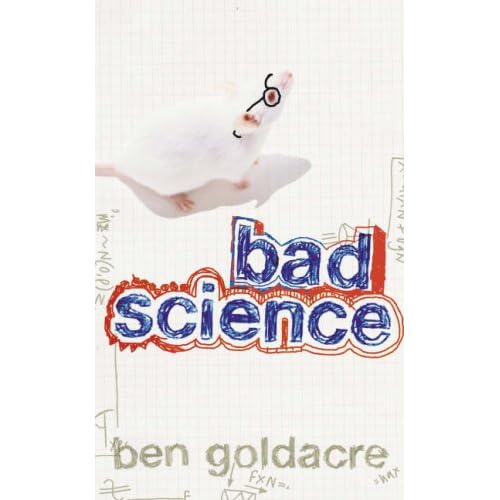 More entertaining research on the human brain, this time from University of California at San Diego. According to Roland Piquepaille writing in Emerging Tech Sexy objects stimulate our brain ones brain’s visual areas respond more to ‘valuable objects’. This starts to raise all sorts of intriguing questions as to ‘what is value’. But before we go there, let’s have a little closer reading of the experiment…
More entertaining research on the human brain, this time from University of California at San Diego. According to Roland Piquepaille writing in Emerging Tech Sexy objects stimulate our brain ones brain’s visual areas respond more to ‘valuable objects’. This starts to raise all sorts of intriguing questions as to ‘what is value’. But before we go there, let’s have a little closer reading of the experiment…
What the experimenters actually did was present the equivalent of an online game or banner – clicky the right one and earn 10 cents, click the wrong and zero. Our brains quickly learn which have more value. This learned action (which is retained even when the subject has forgotten it), can be measured with scans.
Top boffin on the project one John Serences expands:
Though it is too early to say how this relates to perception, it raises the intriguing possibility that we see things we value more clearly – much like the way the brain responds to a bright object versus a dimly lit one. It’s as if the visual system is telling you how valuable something has been to you in the past… (source)
So then, at best previous exchange value, at lowest previous reward value, will imprint on the brain. It still starts to raise is whether there’s a notional value retained in the brain, even if what Marx dubs ‘commodity fetishism’ crudely put as the tendency for ‘things’ to aggregate values and meanings purloined from their human creators/exchangers.
And then we have all those gift-exchange theories, if the gift given is a pain if it’s too valuable, does the brain work in reverse when the giver gives too valuable a gift? ‘Oh on the rotten so and so has arrived with too valuable a gift, how will we ever be able to pay back?’ see for e.g. Marcel Mauss (The Gift) and Georges Bataille (The Accursed Share). One must not forget Jean Baudrillard either, hyperreality is maybe hard-wired reality, the crazy exchange of simulacra is just our brains over-heating at so much symbolic exchange, a hyper potlatch maybe.
Let us return from such cyber heights to the mundane. Not only do humans have the abilty to fire off neurons at perceived value so do apes too, well so do orangutans. See for example the BBC’s “Orangutans learn to trade favours” where a certain “calculated reciprocity” can be seen in orangutans:
Researchers from the University of St Andrews found orangutans could learn the value of tokens and trade them, helping each other win bananas.
What’s more the reciprocity meant that if one of the apes didn’t play game then the was a clear expectation that it should – this was a clear win-win game as St Andrews’ Valerie Dufour explains:
So we have a calculation behind the giving. If you don’t give me enough, then I don’t give you either; but if you give me enough, OK, then I buy your co-operation, and I secure it by giving too.
And so to banner ads. For us here working with the internet there has to be a pay-back for an action – we click a link or banner with a perceived value / reward for that action. And as we know from experience after experience that clicking on a banner ad is a waste of time and effort, we don’t click on them. The neurons stop firing, the visual parts of our brain don’t get that turn-on.
This extends beyond banners though. It casts into question SEO itself. If a site is engineered for SEO but with no actual value then SEO starts to have no value. No matter how clever a site is engineered for value by SEO, unless it has value our brains will not get excited. Dupe us a few times and though we might forget, our brains won’t.
Micah at the Learn to Duck site spells this out: SEO is Dead. It’s dead because the cash-cow has been milked dry by spurious value. But what’s more Micah reckons, the same is happening to social media. Social media has become perceived at least, as the next great cash-cow after the demise of SEO. Micah explains that social media had value, but this value is being underminded by its own success:
The content generated by users of social media began to rank highly in search engines, because it was RELEVANT. Because it had VALUE. Because it was TIMELY. Because it was REAL. Suddenly, all the SEO experts also became Social Media Experts, as social media marketing became the hot new thing.
Once the SEO experts moved to social media, the value says Micah collapse, creating:
social networks and user generated content that is full of useless, noisy, crap.
The solution to this is simple – don’t try and trick via clever SEO tricks, or falsely leveraging social media and offering no real value. It may last for a while, but our neurons know better. Content as ever is king. Even a clever monkey orangutan knows that.
Update – Seth Godin reckons there should be “an unlimited budget for ads that work”. Just a case of defining what works means…





 author of Tipping Point:
author of Tipping Point:  demand the hard facts – in God we trust and all that. For long the Environmentalist lobby has proclaimed the supremacy of hard data against those that doubt their prognosis (too much to close down the chatter some say). Are we though seeing others begin to demand the same scrutiny? The Register is on a mission and then we have Ben Goldacre’s
demand the hard facts – in God we trust and all that. For long the Environmentalist lobby has proclaimed the supremacy of hard data against those that doubt their prognosis (too much to close down the chatter some say). Are we though seeing others begin to demand the same scrutiny? The Register is on a mission and then we have Ben Goldacre’s